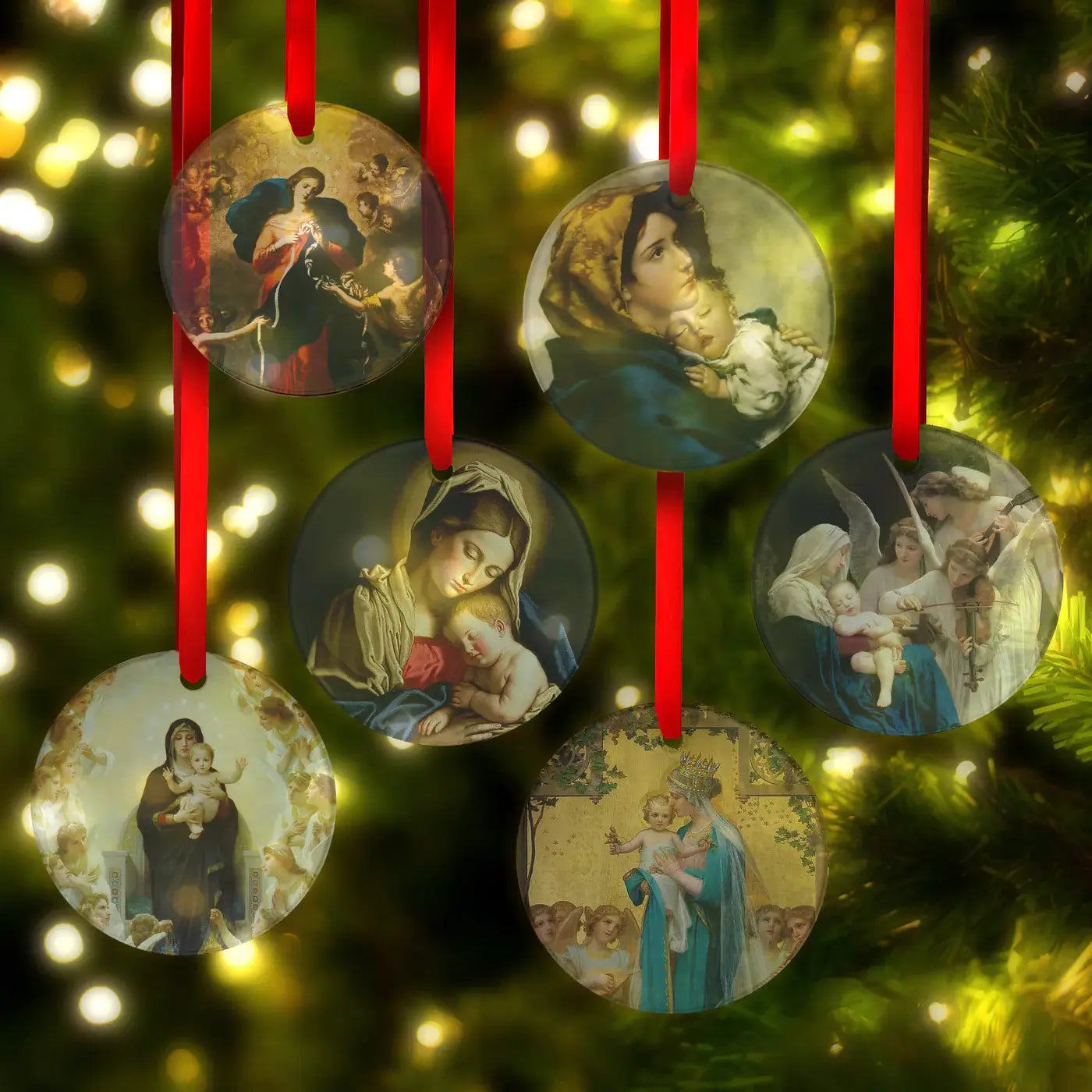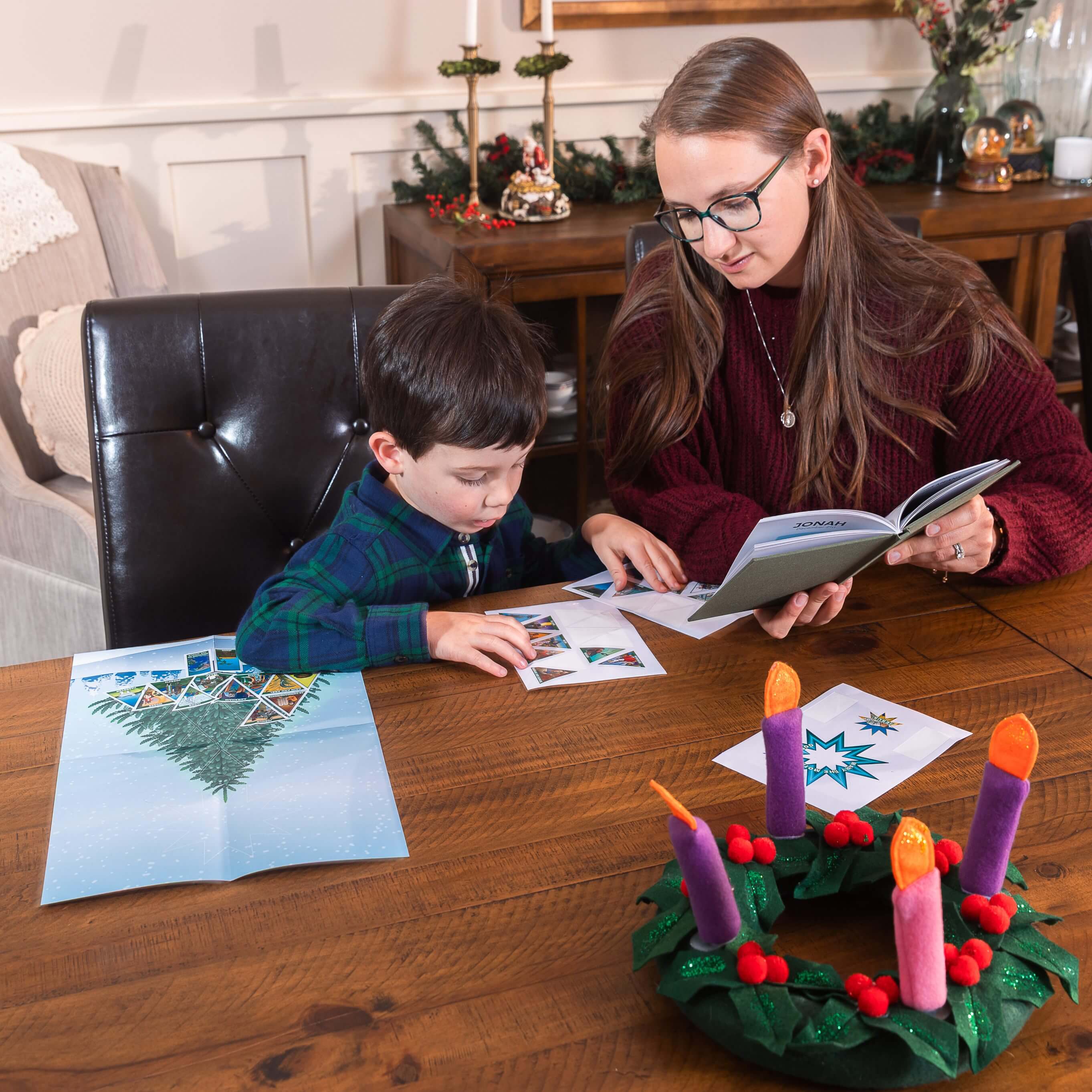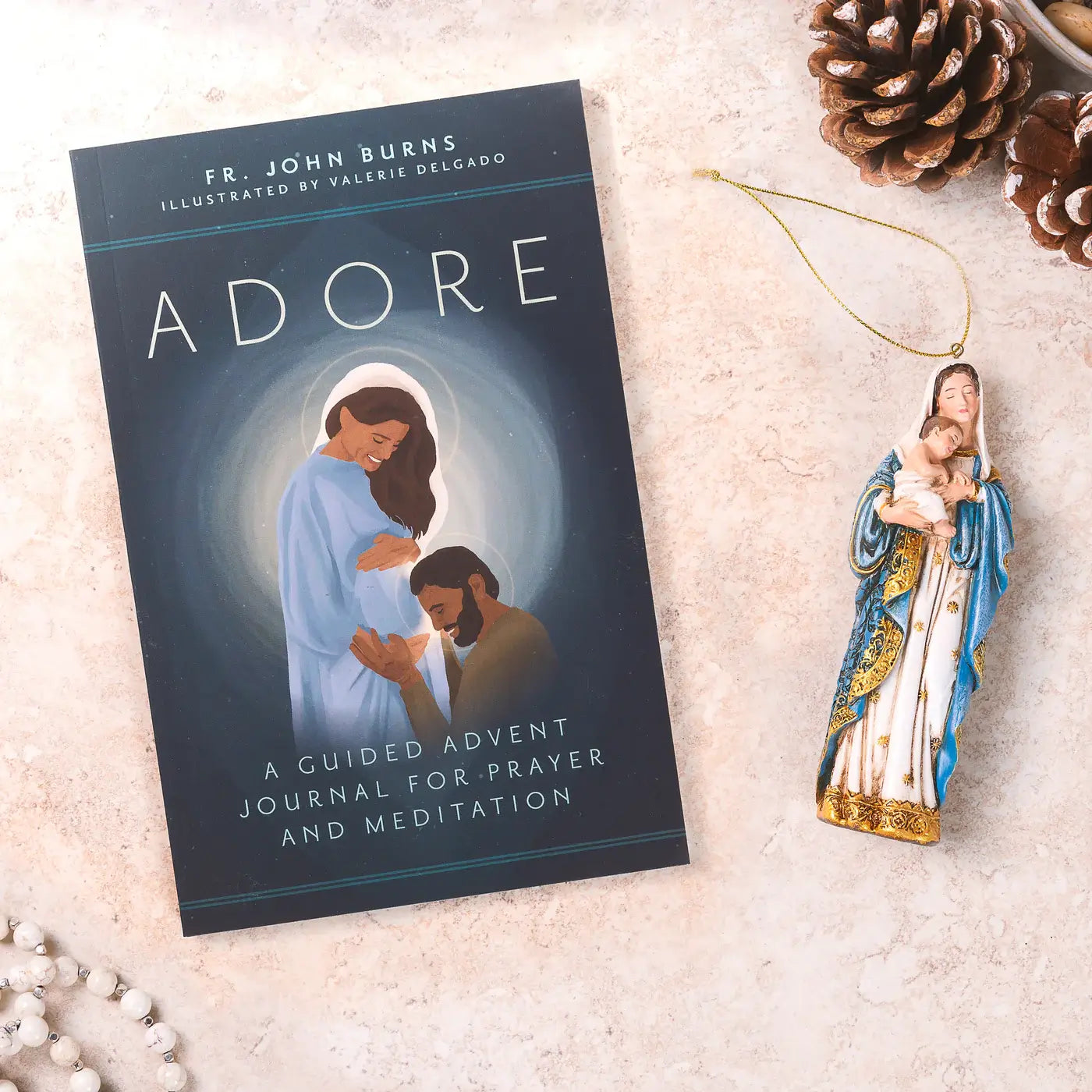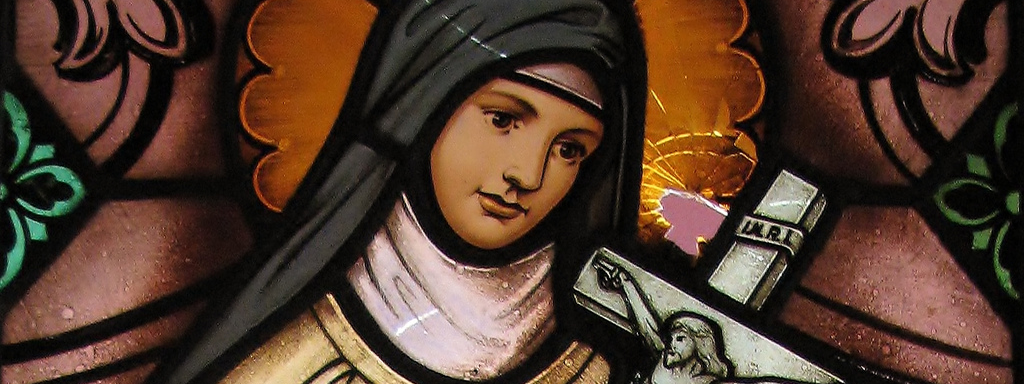St. Maria Faustina Kowalska (1905-1938) was a poor and humble Polish woman famous for being the nun to whom Our Lord personally entrusted his message of Divine Mercy to the world.
It may be presumed by many that, as a close confidant of Jesus, St. Faustina must have enjoyed a privileged life of enormous grace and consolation.
While this is indeed true, it is only the sunny side of the story. As was the case for many of the saints, the grace and consolation St. Faustina received from God was given to her for the purpose of sustaining her through terrible times of darkness.
Hardly imaginable to most of us, St. Faustina knew throughout her darkest trials that she was experiencing, in a spiritual sense, the very pains of hell. This great suffering she endured was part of Jesus' mission for her to become His "Apostle of Divine Mercy" for poor sinners everywhere.
Because St. Faustina went through her dark trials with great humility and unwavering trust in God, she merited a place among the saints in heaven; and from her place in heaven her intercession is most efficacious for sinners and for those who suffer just as she did.
Below is a tender and powerful litany that St. Faustina wrote to Jesus in the Blessed Sacrament, which was her support through the bitter suffering she experienced in her soul—trials that were allowed by Jesus himself.
But first, the strength and beauty of her litany is better appreciated by understanding the deep interior darkness that her soul was plunged into—that is, the darkness which produced such a heart-rending prayer. For this contrast, both her pain and her prayer are reproduced below, written in her own words as contained in her powerful Diary.

A GLIMPSE OF ST. FAUSTINA'S DEEP SUFFERING
Toward the end of the first year of my novitiate, darkness began to cast its shadow over my soul. I felt no consolation in prayer; I had to make a great effort to meditate; fear began to sweep over me. Going deeper into myself, I could find nothing but great misery.
I could also clearly see the great holiness of God. I did not dare to raise my eyes to Him, but reduced myself to dust under His feet and begged for mercy. My soul was in this state for almost six months.
. . .
The second year of the novitiate was approaching. Whenever I recalled that I was to make my vows, my soul shuddered. I did not understand what I was reading; I could not meditate; it seemed to me that my prayer was displeasing to God. It seemed to me that by approaching the Holy Sacraments I was offending God even more. ... God was working very strangely in my soul. I did not understand anything at all of what my confessor was telling me. The simple truths of the faith became incomprehensible to me. My soul was in anguish, unable to find comfort anywhere.
....
At a certain point, there came to me the very powerful impression that I am rejected by God. This terrible thought pierced my soul right through; in the midst of the suffering my soul began to experience the agony of death. I wanted to die but could not.
.....
One day, just as I had awakened, when I was putting myself in the presence of God, I was suddenly overwhelmed by despair. Complete darkness in the soul. I fought as best I could till noon. In the afternoon, truly deadly fears began to seize me; my physical strength began to leave me.
......
During the evening service, my soul began to agonize again in a terrible darkness. I felt that I was in the power of the Just God, and that I was the object of His indignation. ... Only one who has lived through similar moments can understand how terrible is this torment of the soul.

ST. FAUSTINA'S LITANY TO THE BLESSED HOST
O Blessed Host, in golden chalice enclosed for me,
That through the vast wilderness of exile I may pass -
pure, immaculate, undefiled;
Oh, grant that through the power of Your love
This might come to be.
O Blessed Host, take up Your dwelling within my soul,
O Thou my heart’s purest love!
With Your brilliance the darkness dispel.
Refuse not Your grace to a humble heart.
O Blessed Host, enchantment of all heaven,
Though Your beauty be veiled
And captured in a crumb of bread,
Strong faith tears away that veil.
(Diary of Saint Maria Faustina Kowalska, paragraph 159)
O Blessed Host, in whom is contained
the testament of God’s mercy for us,
and especially for poor sinners.
O Blessed Host, in whom is contained
the Body and Blood of the Lord Jesus
as proof of infinite mercy for us,
and especially for poor sinners.
O Blessed Host, in whom is contained
life eternal and of infinite mercy,
dispensed in abundance to us
and especially to poor sinners.
O Blessed Host, in whom is contained
the mercy of the Father, the Son,
and the Holy Spirit toward us,
and especially toward poor sinners.
O Blessed Host, in whom is contained
the infinite price of mercy which will
compensate for all our debts,
and especially those of poor sinners.
O Blessed Host, in whom is contained
the fountain of living water which springs
from infinite mercy for us,
and especially for poor sinners.
O Blessed Host, in whom is contained
the fire of purest love which blazes forth
from the bosom of the Eternal Father,
as from an abyss of infinite mercy for us,
and especially for poor sinners.
O Blessed Host, in whom is contained
the medicine for all our infirmities,
flowing from infinite mercy, as from a fount,
for us and especially for poor sinners.
O Blessed Host, in whom is contained
the union between God and us
through His infinite mercy for us,
and especially for poor sinners.
O Blessed Host, in whom are contained
all the sentiments of the most sweet
Heart of Jesus toward us,
and especially poor sinners.
O Blessed Host, our only hope
in all the sufferings and adversities of life.
O Blessed Host, our only hope
in the midst of darkness and of storms within and without.
O Blessed Host, our only hope
in life and at the hour of our death.
O Blessed Host, our only hope
in the midst of adversities and floods of despair.
O Blessed Host, our only hope
in the midst of falsehood and treason.
O Blessed Host, our only hope
in the midst of the darkness and godlessness which inundate the earth.
O Blessed Host, our only hope
in the longing and pain in which no one will understand us.
O Blessed Host,our only hope
in the toil and monotony of everyday life.
O Blessed Host, our only hope
amid the ruin of our hopes and endeavors.
O Blessed Host, our only hope
in the midst of the ravages of the enemy and the efforts of hell.
O Blessed Host, I trust in You
when the burdens are beyond my strength
and I find my efforts are fruitless.
O Blessed Host, I trust in You
when storms toss my heart about
and my fearful spirit tends to despair.
O Blessed Host, I trust in You
when my heart is about to tremble
and mortal sweat moistens my brow.
O Blessed Host, I trust in You
when everything conspires against me
and black despair creeps into my soul.
O Blessed Host, I trust in You
when my eyes will begin to grow dim
to all temporal things
and, for the first time,
my spirit will behold the unknown worlds.
O Blessed Host, I trust in You
when my tasks will be beyond my strength
and adversity will become my daily lot.
O Blessed Host I trust in You
when the practice of virtue will appear difficult for me
and my nature will grow rebellious.
O Blessed Host, I trust in You
when hostile blows will be aimed against me.
O Blessed Host, I trust in You
when my toils and efforts will be misjudged by others.
O Blessed Host, I trust in You
when Your judgments will resound over me;
it is then that I will trust in the sea of Your mercy.
(Diary of Saint Maria Faustina Kowalska, paragraph 356)

This article has been updated and was originally published in October 2016. © The Catholic Company
























